Discover The Chase Jarvis LIVE Show
The Chase Jarvis LIVE Show

The Chase Jarvis LIVE Show
Author: Chase Jarvis
Subscribed: 4,058Played: 127,616Subscribe
Share
© Chase Jarvis
Description
Chase Jarvis is a visionary photographer, artist and entrepreneur. Cited as one of the most influential photographers of the past decade, he is the founder & CEO of CreativeLive. In this show, Chase and some of the world’s top creative entrepreneurs, artists, and celebrities share stories designed to help you gain actionable insights to recognize your passions and achieve your goals.
711 Episodes
Reverse
Hey friends, Chase here. I’m back with a little reflection that’s been brewing for a while—one that hits right at the heart of what it means to be a creator right now. Lately, the number one question in my inbox (and probably yours too) goes something like this: “What happens to creativity now that AI can do so much?” If that question sounds familiar, you’re not alone. We’ve seen this movie before. Back in 2006, I wrote a post responding to photographers who were terrified that point-and-shoot cameras would “steal” their jobs. Fast forward to today, and we’re hearing the same fear—just swap “AI” for “amateurs with a camera.” For a trip down memory lane, check out that original post, “Don’t Worry, Just Focus. Please.” — it’s wild how the same conversation echoes through time. Different tools, same creative truth. The Creative Edge Isn’t Vanishing — It’s Moving. Here’s the thing: every new tool feels like a threat at first. Digital cameras. Instagram. Smartphones. Now AI. Each time, a slice of the market shifts. The low-end work gets automated or absorbed by cheaper, faster tools. But the top quartile—the creators who bring taste, originality, and human nuance—don’t vanish. They adapt, evolve, and expand what’s possible. If you’re worried about being replaced, you’re probably looking at the wrong part of the playing field. The real creative edge has just moved—it’s waiting for you to catch up. Here’s what we get into in this episode: History repeats: from point-and-shoot cameras to AI, every leap in tech stirs the same fear—and the same opportunity Stay out of the bottom tier: low-margin work gets eaten first; creativity built on depth, taste, and expertise always finds demand Leverage the tools: don’t compete with the machine—learn to wield it to multiply your output and sharpen your ideas Mindset as the real skill: the belief that you can evolve is what keeps you in the game when the rules change The big idea? Your creative advantage isn’t disappearing—it’s evolving. The tools may change, but what makes your work matter has always been the same: curiosity, courage, and a willingness to play with what’s next. AI isn’t the end of creativity. It’s an invitation to a new chapter. So pick up the tools, experiment, and move with the edge—because that’s where the real art happens. Until next time—stay curious, stay evolving, and keep creating.
In this week’s episode, we’re revisiting a powerful conversation that aired back in 2021 — one that’s just as relevant today as it was then. Mel Robbins has continued to inspire millions with her practical, science-backed approach to behavior change and personal growth. Since our last chat, she’s released a brand-new bestseller, The Let Them Theory, which builds beautifully on the ideas we explored together in this earlier episode. Whether you’re new to Mel’s work or a longtime fan, this replay captures timeless insights into managing anxiety, regulating your nervous system, and finding your creative flow — lessons that feel even more essential in today’s fast-paced, always-on world. Mel is a global thought leader, an international bestselling author of The High 5 Habit and The 5 Second Rule, and one of the most trusted voices in personal development. Her TEDx talk, “How to Stop Screwing Yourself Over”, has reached over 30 million viewers worldwide. In this conversation, we explore how anxiety and overwhelm affect creativity and productivity — and how small, consistent actions can help you reset your nervous system, quiet fear, and get back to meaningful work. Some highlights we explore: Why understanding your nervous system is key to unlocking focus and creativity. Mel’s practical tools for beating overwhelm and reigniting motivation when you’re stuck. How The High 5 Habit laid the groundwork for her new philosophy in The Let Them Theory. Simple daily practices — from mindfulness to micro-goals — that build momentum and self-trust. Why now might be the best time ever to create, even when the world feels uncertain. This episode is a reminder that growth doesn’t come from control — it comes from courage, consistency, and letting go. If you’ve been navigating stress, self-doubt, or creative fatigue, Mel’s wisdom will help you reset and reimagine what’s possible. Enjoy the revisit!
Hey friends, Chase here. I’m writing you today from the south of France, where I’ve been taking a little breather before a busy fall. This episode is a reflection on some of the most popular questions that came up around the launch of Never Play It Safe. In the particular lies the universal — and the questions from our community reflect challenges so many of us face. Burnout, Side Hustles & Tiny Experiments Matt asked about starting a coaching/consulting side hustle. My answer? Don’t try to solve everything from the couch. Start small. Run tiny experiments. Serve people by solving the problems you’ve already solved for yourself. From there, Dylan jumped in with a question about making a film project with a comedian friend. We dug into what it means to treat creative collaborations like real businesses — agreements, responsibilities, financing, and the all-important element of play. Here’s what we get into in the episode: Side hustles that stick: why solving your own past problems makes you a better coach or consultant Tiny experiments: the fastest way to test ideas and get real data instead of planning forever Collaboration as play: how operating agreements and clear roles keep partnerships fun instead of frustrating Burnout recovery: why rediscovering play is the antidote to grazing through work like a cow instead of hunting like a lion The big idea? The best way forward isn’t overthinking — it’s showing up, experimenting, and rediscovering play in the process. Until next time—stay playful, stay curious, and keep creating.
Hey friends, Chase here. At the height of my career—awards, startups, celebrity collabs—my wife stopped me cold with one question: “How much is enough?” I didn’t have an answer. From the outside, life looked perfect. But inside, I was chasing “more” without knowing why. The Illusion of More The culture around us says: keep climbing, keep grinding, keep stacking. But more for the sake of more eventually costs you—your health, your relationships, even your sense of self. Without defining what “enough” looks like, ambition becomes a treadmill you can’t step off. Why Constraints Set You Free Here’s the twist: constraints aren’t limitations, they’re freedom. When you know what’s enough—whether that’s money, recognition, or time—you can stop running in every direction and start building the life you actually want. Here’s what we get into in the episode: The trap of “more”: why unchecked ambition always demands a bigger price Defining enough: how boundaries create focus, energy, and freedom Hustle vs. challenge: the difference between busy work and meaningful growth The big idea? If you don’t define your “enough,” the world will do it for you—and you probably won’t like the result. Ask the question. Write it down. Revisit it often. That’s how you turn ambition into a compass instead of a trap. Until next time—stay intentional, stay clear, and keep creating.
Hey friends, Chase here. If social media feels heavier than it used to, you’re not imagining it. Infinite feeds, algorithm whiplash, and the pressure to post “one more thing” can drain the very creativity we’re trying to share. Here’s the shift: treat social media like a stage you step onto with intent—not a sofa you collapse into by default. Social Media as a Stage, Not a Sofa A stage has purpose: you arrive prepared, you deliver, you connect, you step off. A sofa invites scrolling, numbing, and losing track of the most precious resource you own—your attention. When you design systems that honor the stage, you get 90% of the upside with a fraction of the noise. Create before you consume. Get your ideas out of your head and into the world first. Then study the landscape with clear eyes: What worked? What didn’t? What can you improve next rep? Here’s what we get into: Systems resist their systems: your schedule, not the algorithm, sets when and how you show up Frameworks, not feeds: reusable prompts and formats that make creation repeatable Stagecraft: show up to present, connect, and move the ball forward—then step off The big idea? Social platforms are powerful—when they serve your purpose. Use them as a stage: step on with intention, deliver your best, connect with your people, and step off before the sofa starts calling your name. For the full playbook—including how to set boundaries that stick—check out this week’s episode of the show. Until next time—stay intentional, stay bold, and keep creating.
Hey friends, Chase here. If you’re feeling anxious about money right now, you’re not alone. Shrinking budgets, AI headlines, and general chaos have a lot of us questioning our value. The default move? Grab the nearest paycheck. But here’s the truth: trading your dreams for short-term security is the fastest way to kill the life you actually want. Don’t trade your dreams for security. Paying the bills matters—we’ve all been there. I waited tables in the early days of my photography career just to get by. But that was never the goal. The real goal was building a life with freedom at its core. Because freedom is what fuels creativity. It’s what lets you chase the projects, the art, and the opportunities that light you up. Your future self is begging you not to settle. Fear says play it safe. Freedom says create. Every time you choose freedom—whether that’s carving out an hour to shoot, write, or build—you’re moving closer to the life you want. Here’s what we get into: Why chasing paychecks without purpose keeps you stuck How designing for freedom fuels creativity (and opportunity) What Paris taught me about building a framework for creative living Why clarity + momentum are the secret weapons for designing your life How to balance short-term security with long-term vision The big idea? Money matters. Security matters. But if you sacrifice your vision just to feel safe, you’ll never build the life you know you’re capable of living. Freedom isn’t something you wait for—it’s something you design, one intentional choice at a time. Until next time—stay free, stay bold, and keep creating.
Hey friends, Chase here. I’m writing this from the beach, staring at the ocean, and I’ve got one big reminder for you today: You are your future. Sure, AI is everywhere. New tools pop up daily. You’ve probably seen the tweets: “Anyone can type a prompt and become a world-class designer, writer, photographer.” Sounds nice. But let’s be real—that’s not how this works. You make the work. Not the tools. AI is powerful. No doubt. But it’s still just a tool. A $10,000 camera won’t make you Ansel Adams. And a shiny new AI app won’t magically give you taste, vision, or experience. Those come from the reps—from showing up, failing, refining, and creating again. So if you’ve spent years honing your craft, here’s the truth: You’re at an advantage. Your taste, scars, and hard-won skills can’t be downloaded. And no AI prompt can replicate them. Here’s what we get into: Why your creative vision is the differentiator that separates pros from amateurs How fluency in your craft helps you direct tools (instead of guessing with them) Why every new tool—from Photoshop to AI—is just another layer on the same creative job How to flip the “AI makes me obsolete” narrative into fuel for your next chapter Why your fundamentals—taste, style, voice—matter more now than ever The big idea? The tool is the least important part of the work. You don’t need to become a “prompt engineer.” You just need to keep showing up as the creative badass you already are—one who adapts, experiments, and leads with vision. Keep pushing, keep experimenting, and above all—make work only you can make.
In this episode, Jim Murphy shares how training your mind for inner excellence leads to peace, confidence, and extraordinary performance. Jim is a #1 New York Times bestselling author and Performance Coach to some of the best athletes and leaders in the world. He began his career as a professional baseball player in the Chicago Cubs organization, later coaching with the Texas Rangers and the South African Olympic baseball team. Jim has worked with world champion golfers, FedEx Cup champions, and world #1’s — and most of his clients experience the best year of their careers in their first year with him. In addition to coaching professional athletes and executives, he leads Inner Excellence retreats worldwide and serves as president of the Inner Excellence Freedom Project, dedicated to alleviating spiritual and physical poverty. We dig into Jim’s remarkable story — from giving away half his possessions and heading into the desert to discovering the principles that became his life’s work. Along the way, he unpacks how courage, presence, and letting go of the past are key to unlocking human potential. Whether you’re an athlete, a business leader, or just someone who wants more peace and confidence in your life, this conversation will expand what you believe is possible. Some highlights we explore: The moment AJ Brown was filmed reading Inter Excellence during every NFL playoff game, including the Super Bowl. Why Jim says “selfless is fearless” — and how the greatest need of the human heart is unconditional love. The BFF formula: belief, focus, and freedom — and why courage is the most common trait of high performers. The four daily goals of inner excellence: learn and grow, be present, gratitude, and focus on what you can control. Enjoy!
Hey friends, Chase here. If AI has you wondering whether your work will still matter—you’re not alone. The pace of change is dizzying. New tools drop daily. “Good enough” work is getting automated before you can even refresh your feed. But here’s the good news: This is not the end. It’s the beginning—if you choose it. The future belongs to those who lean into what machines can’t replicate: your taste, your story, your weirdness, your voice. In this episode, I unpack what it takes to stand out right now—not by running from the tech, but by using it while building a body of work that’s unmistakably yours. Will your work still matter when everyone else is using AI to create? It’s a real question. And let’s be honest—it’s one a lot of us are quietly asking. Every day, new tools make it easier (and faster) to generate content, art, writing, music—you name it. The machines are learning. Fast. So where does that leave you? At an advantage—if you bring your point of view to the table. Because here’s the truth: AI can copy the output. But it can’t copy you—your soul, your story, your weirdness, your taste. The things that made you a creative person in the first place. That’s where the opportunity lives. Here’s what we get into: Why your point of view is your ultimate differentiator How to make your portfolio future-proof (and unmistakably yours) The shift from pressing buttons to telling stories Why taste, style, and voice matter more than ever How to make work that’s irreplaceable—not just impressive The big idea? Anyone can generate something. But only you can create something with heart, with history, with soul. This isn’t about fearing the future. It’s about shaping it—on your terms. Use the tools, yes. But lead with your voice, your vision, your humanity. Trim the generic. Amplify the real. Build a body of work that says something no AI ever could: “This is me.” Until next time—stay human, and keep creating.
Hey friends, Chase here. If AI has you wondering whether your work will still matter—you’re not alone. The pace of change is dizzying. New tools drop daily. “Good enough” work is getting automated before you can even refresh your feed. But here’s the good news: This is not the end. It’s the beginning—if you choose it. The future belongs to those who lean into what machines can’t replicate: your taste, your story, your weirdness, your voice. In this episode, I unpack what it takes to stand out right now—not by running from the tech, but by using it while building a body of work that’s unmistakably yours. Here’s what we get into: Why your point of view is your ultimate differentiator How to make your portfolio future-proof The shift from pressing buttons to telling stories Why now is the time to trim the generic and amplify the real The big idea? Anyone can generate something. But only you can create something with heart, history, and soul. Until next time—stay human, and keep creating.
In this episode, Ben Uyeda shares how chasing purpose instead of scale can transform your creative career — and your life. Ben is a designer, entrepreneur, and creative force who left behind a successful architecture firm and an Ivy League teaching gig to bring high-design concepts to the masses through media. His free, widely shared designs have reached over 50 million people and are being built around the world. We dive deep into the tension between scale and meaning in the creator economy — and how Ben has escalated from designing vases on YouTube to building a 65-room hotel in the desert, all without losing his creative soul. Whether you’re an artist, entrepreneur, or just trying to figure out what’s next, this conversation will challenge you to rethink your relationship with risk, money, and mastery. Some highlights we explore: “Scaling is just repeating. Escalating is growing.” The mindset shift that changed Ben’s career. Why Ben believes nature is becoming a luxury good — and how that shaped the Reset Hotel. The key difference between creatives who thrive in AI disruption and those who panic. Enjoy!
Hey friends, Chase here. Will your work still matter when everyone else is using AI to create? It’s a real question. And let’s be honest—it’s one a lot of us are quietly asking. Every day, new tools drop that make it easier (and faster) to generate content, art, writing, music—you name it. The machines are learning. Fast. So where does that leave you? If you’re a creator, this moment isn’t the end. It’s the beginning—if you choose it. Because here’s the truth: AI can copy the *output*. But it can’t copy *you*—your soul, your story, your weirdness, your taste. The things that made you a creative person in the first place. And that’s where the opportunity lives. In this episode, I unpack how to stand out in the age of AI—not by competing with it, but by doubling down on what makes your work unmistakably human. Here’s what we get into: Why your unique POV is now your most valuable asset How to build a portfolio AI can’t replicate The difference between pressing buttons and telling stories Why taste, style, and voice matter more than ever How to make work that’s irreplaceable—not just impressive The big idea? Anyone can generate something. But only you can *create* something with heart, with history, with soul. This isn’t about fearing the future. It’s about shaping it—on your terms. Using the tools, yes. But leading with your voice, your vision, your humanity. Because that’s what will make your work matter tomorrow—even when machines are everywhere. So take a hard look at what you’re making. Trim the generic. Amplify the real. And build a body of work that says something no AI ever could: *“This is me.”* Until next time—stay human, and keep creating.
Hey friends, Chase here. Ever feel like life’s just… happening to you? You wake up, check your phone, go through the motions. Weeks blur into months. You’re busy but not fulfilled. Productive but not progressing. Here’s the hard truth: If you’re not intentional about what you’re building, you’ll drift. And drift leads to regret. But here’s the good news: You can choose to stop drifting—today. You can start building what actually matters most to you. In this episode, I break down 10 core principles for doing just that. These aren’t quick hacks or lofty theories. They’re hard-won lessons from world-class performers, artists, and makers who’ve mastered their craft and their lives. Here’s a taste of what we get into: Why simplicity beats complexity every time (stop overcomplicating your goals) How to harness resistance instead of fighting it Why passion isn’t optional—it’s fuel for the hard stuff The hidden cost of “bad” practices you don’t even realize you’re repeating How to ditch autopilot and consciously design your days The big idea? You are what you practice. Every choice, every habit, every action is shaping your future. The question is: are you practicing the life you want—or one you’ll want to escape? This isn’t about doing more. It’s about doing what matters. On purpose. So take a breath. Look around. And ask yourself: What am I really building? This episode will help you answer—and take the first steps toward it. Until next time—stay intentional, and keep creating.
Hey friends, Chase here. Ever feel like you’re waiting for someone to hand you the map? You know—the step-by-step plan for building a creative life you actually want. The rules for how to get unstuck. The playbook for doing meaningful work without burning out or selling out. Here’s the truth: That rulebook doesn’t exist. No one’s coming to hand it to you. Not your boss. Not a guru. Not even me. And honestly? That’s a good thing. Because if there’s no rulebook… you get to write your own. In this episode, I share 11 lessons that have helped me (and countless others) carve a path when there wasn’t one. They’re not “rules” in the traditional sense—they’re more like signposts. Principles you can remix into a guide for your own life. Here’s a taste of what we cover: Why “get sh*t done” beats overthinking every single time How to make your own rules—and know when to break them Why practicing your craft relentlessly matters more than chasing shiny shortcuts Why helping others isn’t just nice—it’s a success multiplier The big idea? Stop waiting for permission. Stop looking for the perfect plan. The only way to build the life you want is to start where you are, with what you have, and figure it out as you go. There’s no perfect path. Just your path. So grab a pen. Start drafting your rulebook—messy, incomplete, and uniquely yours. Because the life you’re craving? It won’t come from playing by someone else’s rules. Until next time—stay bold, and keep creating.
Hey friends, Chase here. Ever feel like you’re working your ass off but not really getting anywhere? You’re putting in the hours. Practicing. Grinding. But the needle isn’t moving. Here’s the truth: The best in the world aren’t just clocking more time—they’re practicing differently. They’re ruthless about the basics. They’ve fallen in love with the process. And most importantly? They’ve built their identity around their craft. In this episode, I break down the 3 pillars of practice that separate masters from the rest of us—and how you can use them to level up. We’ll cover: The 3 pillars every top performer lives by Why mastering the fundamentals beats chasing flashy skills How to make practice something you crave, not dread The secret link between identity and growth most people miss Enjoy!
In this episode, Rory Vaden shares how your past pain may hold the key to your future impact. Rory is a New York Times bestselling author and co-founder of Brand Builders Group, where he’s helped shape some of the most influential personal brands in the world—including Lewis Howes, Ed Mylett, and Amy Porterfield. We explore why so many people chase fame and followers but still feel empty—and how shifting your focus to serving others can radically change everything. Rory opens up about his own journey from self-centered success to purpose-driven impact, and breaks down the surprising path to finding your unique voice and turning it into lasting influence. If you’ve ever wondered what really makes your work matter, this one’s for you. Rory is also giving away the entire audiobook of his new book, Wealthy and Well-Known, for free. Get it at freebrandaudiobook.com/chase. Some highlights we explore: “You are most powerfully positioned to serve the person you once were.” Rory’s core idea for finding your purpose. Why multiple income streams don’t build wealth—but focus does. How Lewis Howes 10x’d his podcast by cutting nearly everything else. A blunt truth: “If you have diluted focus, you get diluted results.” Enjoy!
Hey friends, Chase here. Ever scroll through social media and feel like you're falling behind? You see someone crushing it—their work looks flawless, their videos are sharp, their life seems effortless. And then that voice creeps in: “I’m not doing enough.” “I’ll never catch up.” Yeah. That feeling? That’s comparison doing its thing. But what if I told you the scroll doesn’t have to suck the life out of you? What if it could do the opposite? Here’s the truth: Social media is one of the most powerful learning tools on the planet—if you use it right. Not for validation. Not for endless distraction. But as a living library of creative technique, storytelling, and craft. The trick? You’ve gotta stop watching like a fan—and start studying like a student. See a photo that grabs you? A reel that feels electric? A post that hits hard? Instead of asking “Why not me?”—ask “How’d they do that?” Break it down. Steal the structure. Take notes. Try your own spin. It’s not about copying. It’s about collecting ideas. About seeing what works and remixing it with your own flavor. I call it the DEAR Method: Deconstruct what caught your eye Emulate the parts that resonate Analyze what works when you apply it Repeat the stuff that sticks It’s a creative cheat code hiding in plain sight. So yeah—social media can mess with your head. But it can also level up your skills if you stop letting it run the show. Turn the scroll into study. Flip envy into energy. Let the work you admire teach you something real. Because guess what? You’re not behind. You’re just one honest rep away from getting better. Until next time—stay curious, and keep creating.
Hey friends, Chase here. Ever feel like failure means you're broken? You messed up. You launched something and it flopped. Maybe you put your heart on the line and it didn’t go your way. That sting? It’s real. No quote on Instagram is going to make it magically go away. But here's the truth: Failure isn’t the opposite of progress. It’s part of it. We live in a world that either glamorizes failure like it’s some kind of badge of honor—or tells us to avoid it like the plague. But neither story is complete. Failure hurts—especially when you care. That’s what makes it meaningful. A bad pitch, a failed launch, a relationship gone sideways—if you tried, if you truly cared, then the pain you're feeling is proof that you're alive and in the game. It’s data. It's a signal. It's the exact thing that helps you grow. So what's the play? Try hard. Ship often. Then do it again. Don’t make garbage just to say you did something. Don’t fake effort to avoid real disappointment. Give it what you’ve got—then put it out there before it’s perfect. That’s the sweet spot. Not hiding behind polished perfection. Not pretending you don’t care. But showing up. Again and again. And when it hurts? When you fail? Good. That means you're learning something that matters. Failure isn’t your enemy. It’s your frenemy. You don’t have to love it—but you do need to make peace with it. Until next time, stay bold, and keep shipping.
Hey friends, Chase here. Ever feel like life is happening somewhere else? You're in the room, but your mind’s a thousand miles away—replaying something you said, stressing about what’s next. It's normal. It's human. But it's also how we miss the best parts of life. The past is over. The future isn’t real yet. All we ever really have is right now. It took an avalanche—yes, a literal one—for me to fully understand this. In those few terrifying seconds, time slowed down. I was completely present. Fully alive. That experience changed me. And I’ve been trying to live like that ever since. You don’t need something dramatic to wake up. You just need to start paying attention. That’s what this episode is about: why this moment is everything, and how to stop missing it. Until next time, stay present, and stay awake.
Hey friends, Chase here. Ever feel like your mind is all over the place? Emails. Notifications. News. Noise. We live in a world designed to hijack our attention, and it’s working. Attention Is a Superpower In a world this noisy, your ability to focus isn’t just helpful. It’s everything. Viktor Frankl found purpose in the darkest of places by choosing where to direct his mind. Mihaly Csikszentmihalyi discovered flow while surviving war by focusing on a single game of chess. Louis Zamperini endured torture by turning his attention toward faith and forgiveness. These weren’t magic tricks. They were choices. Repeated. Intentional. Life-saving. What You Focus On Becomes Your Life Science backs it up. As Dr. Andrew Huberman says, “The ability to focus and direct one's attention is the distinguishing factor between those who will succeed and those who won’t.” That’s not just about work or goals. That’s about everything. Your relationships. Your health. Your sense of self. Because attention doesn’t just shape what you see. It shapes who you become. Train Your Attention Like Your Life Depends on It You don't have to escape to the mountains or delete every app on your phone. You just have to start noticing where your attention goes, and gently bring it back to what matters most. Ask yourself: What am I really focusing on right now? Is it helping me or draining me? What would happen if I chose differently? Your attention is yours. Don’t give it away without a fight. Until next time, stay focused and stay free.


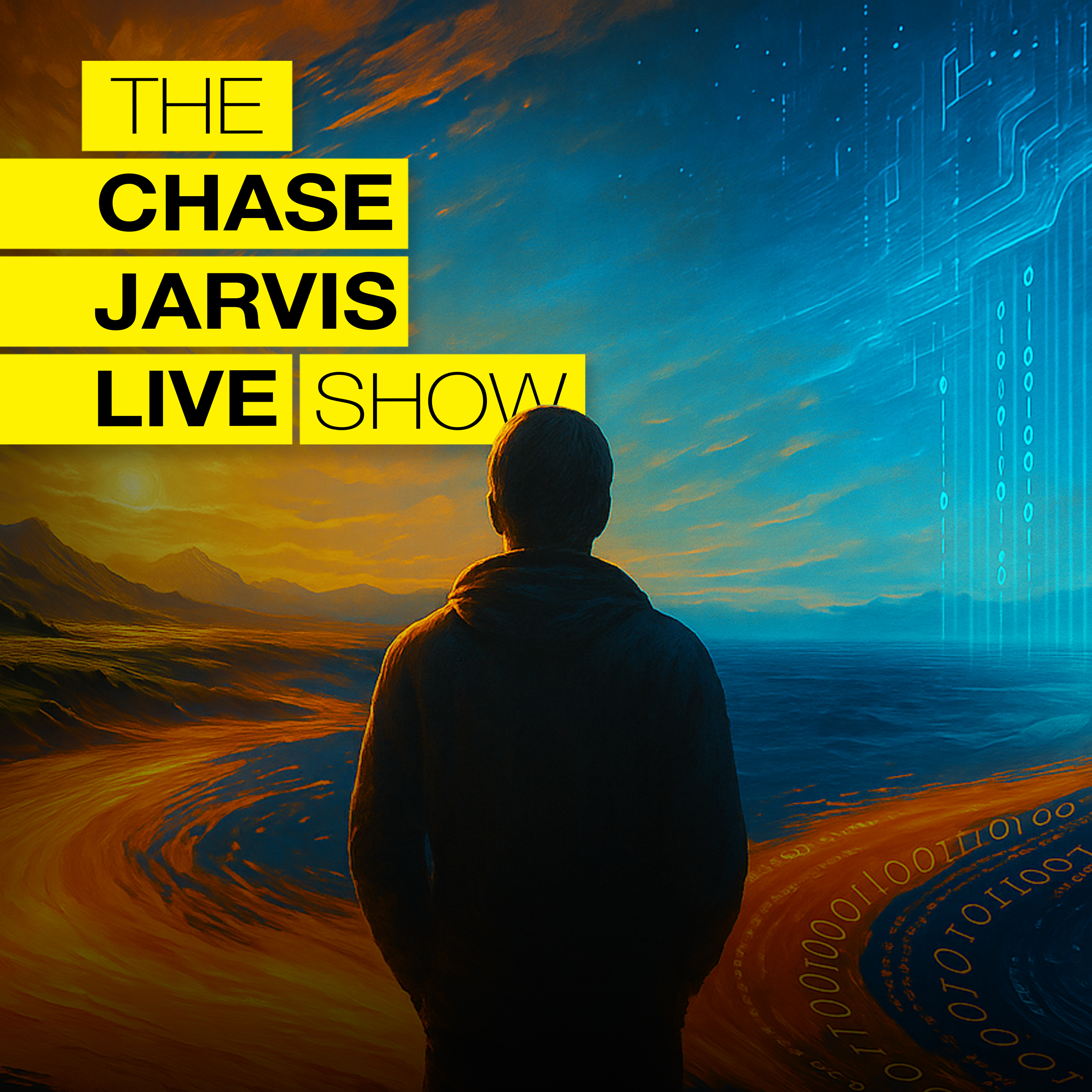
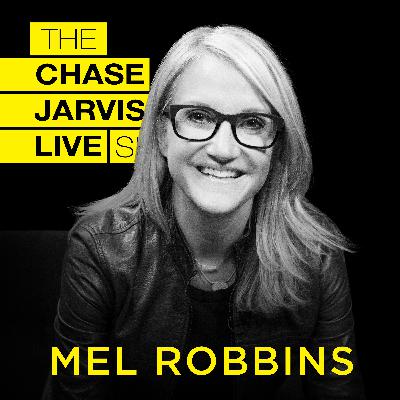
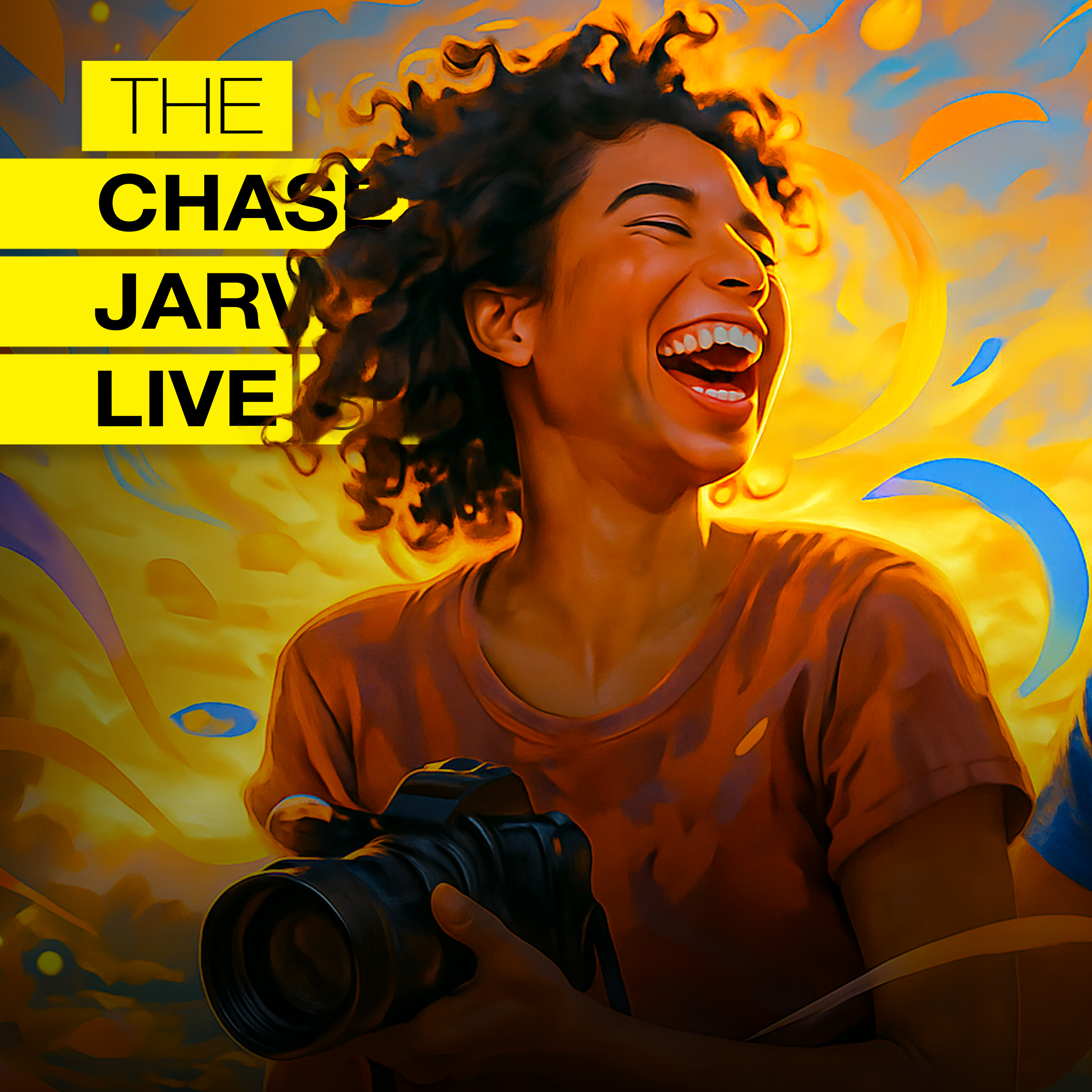
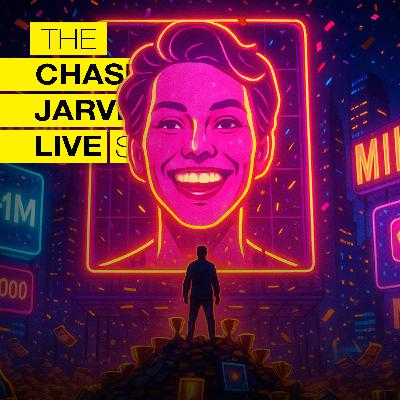

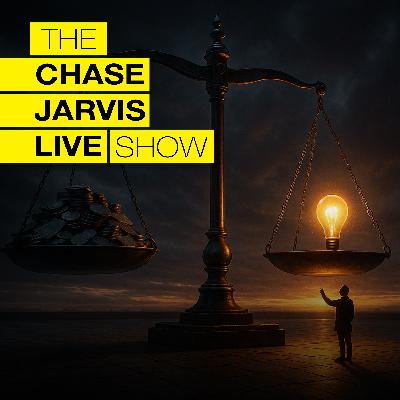
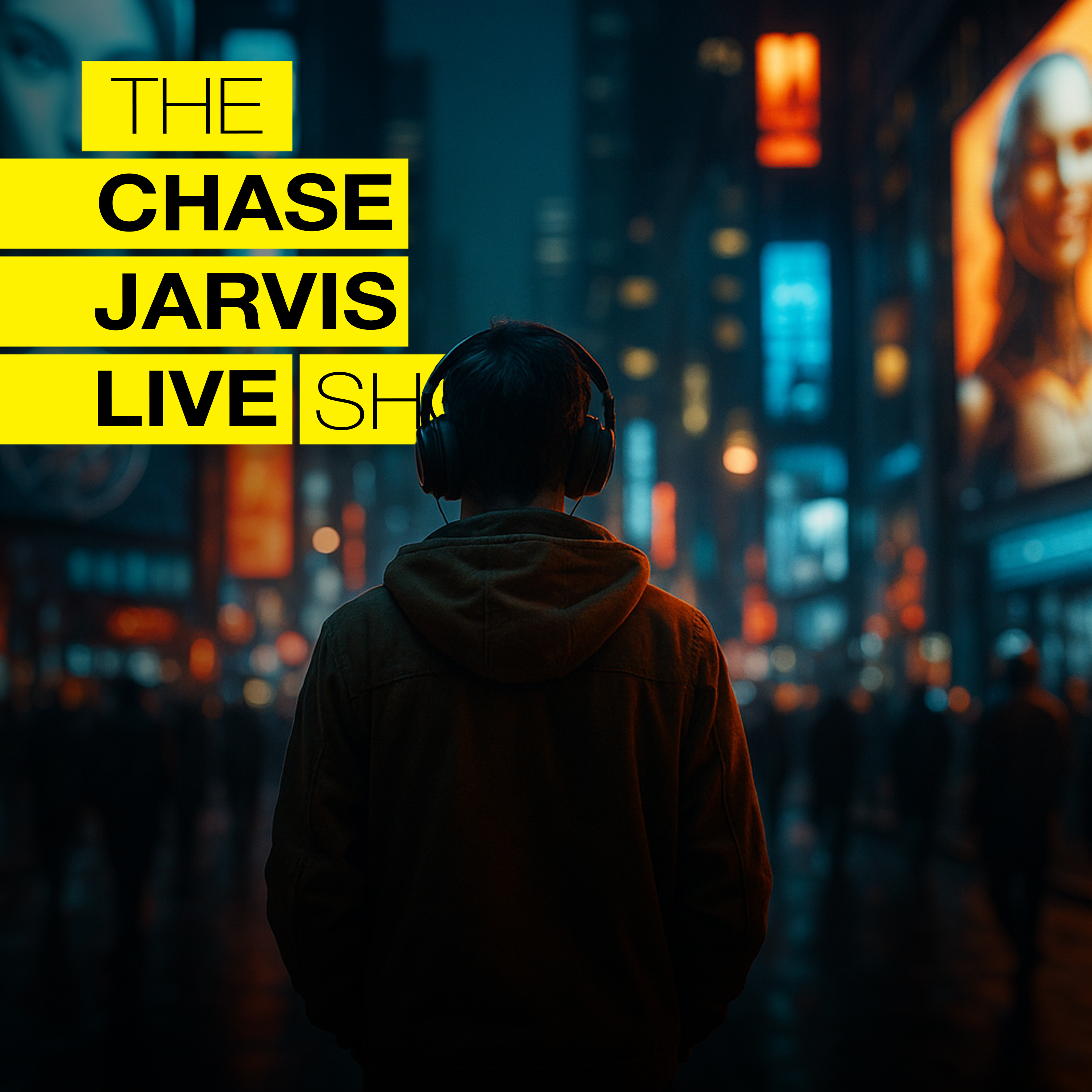
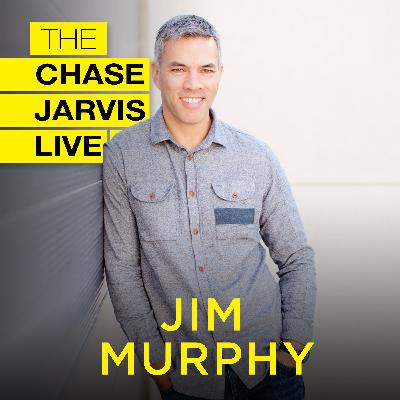
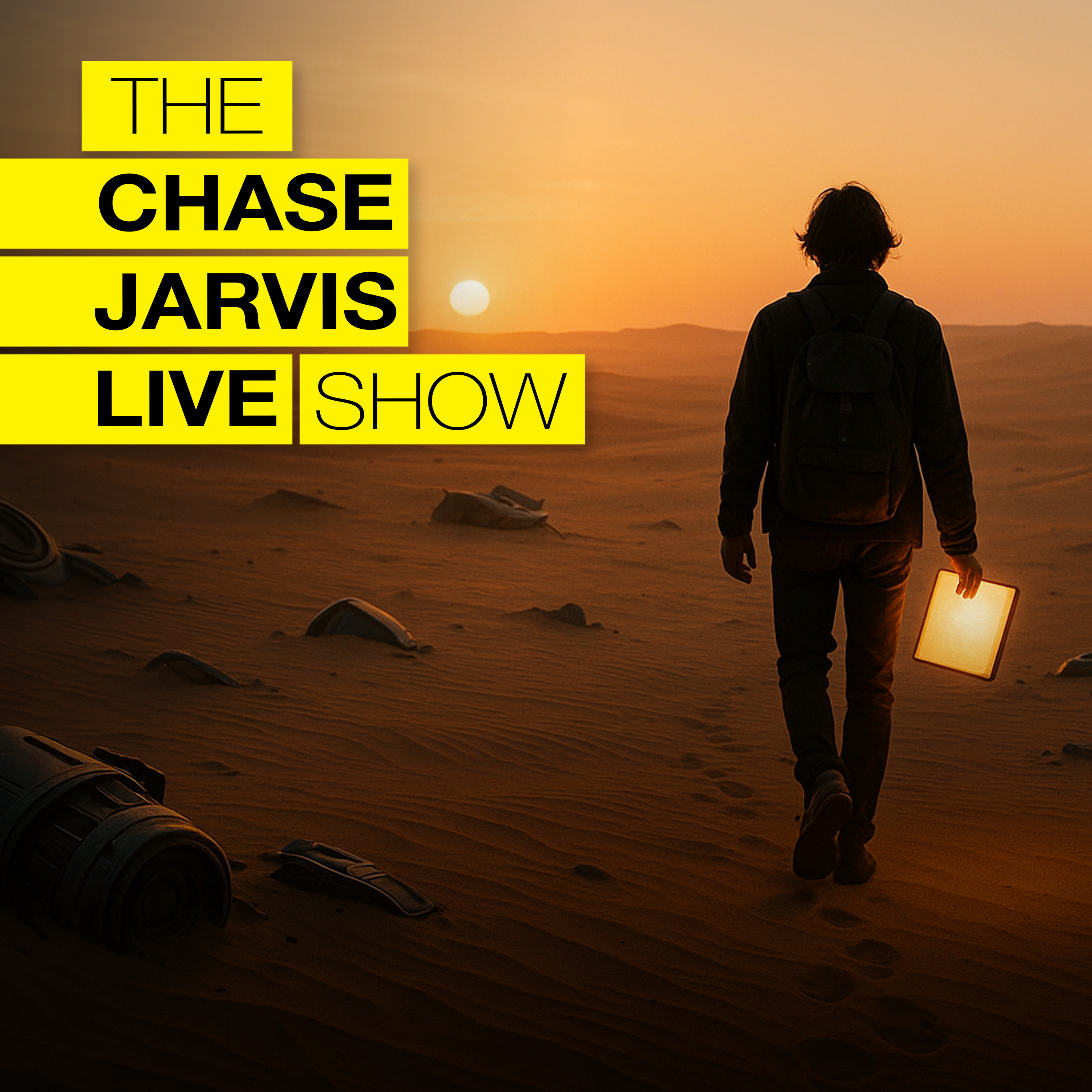
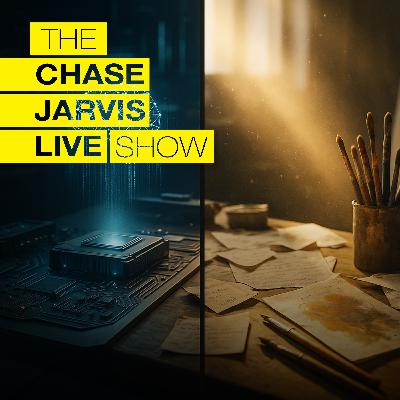
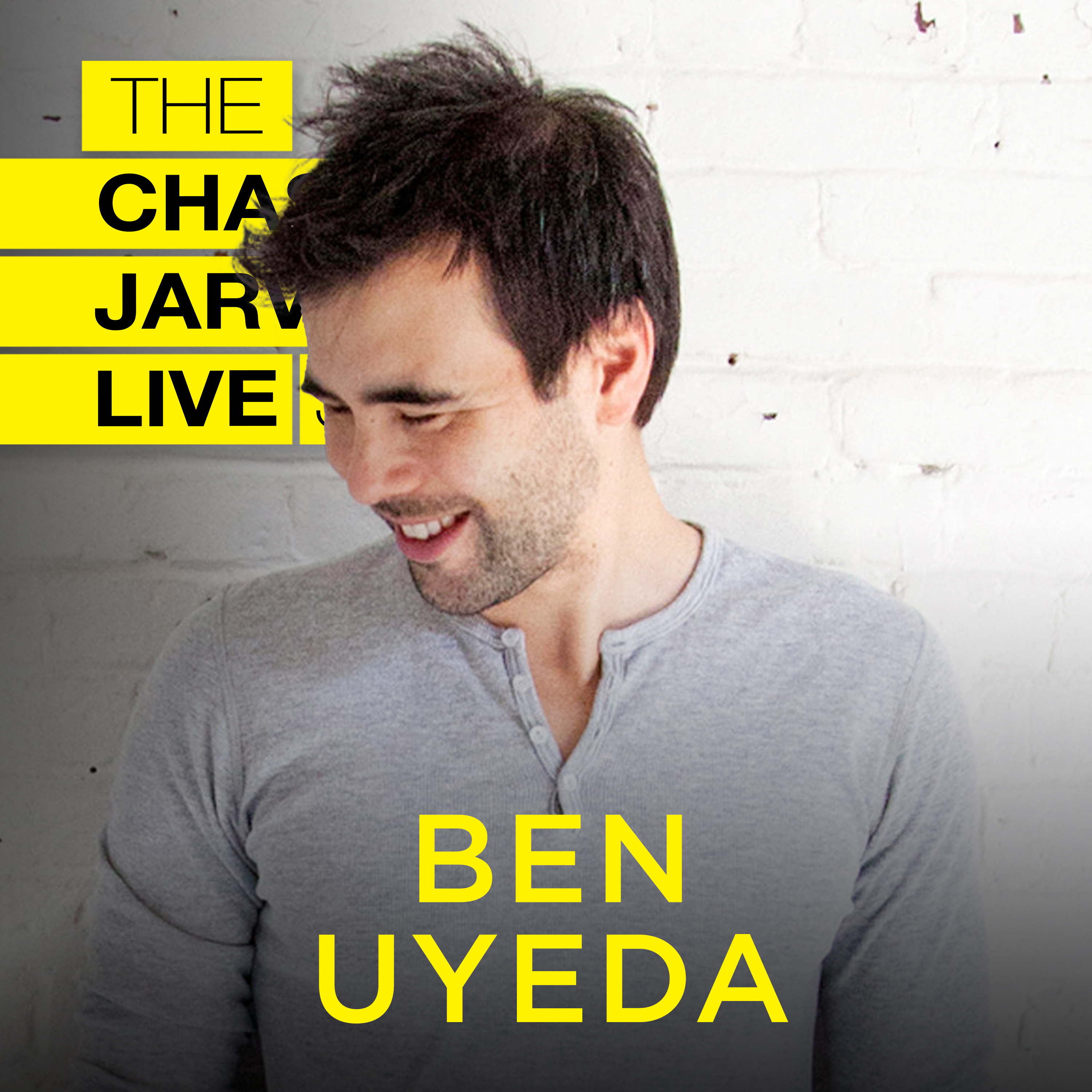

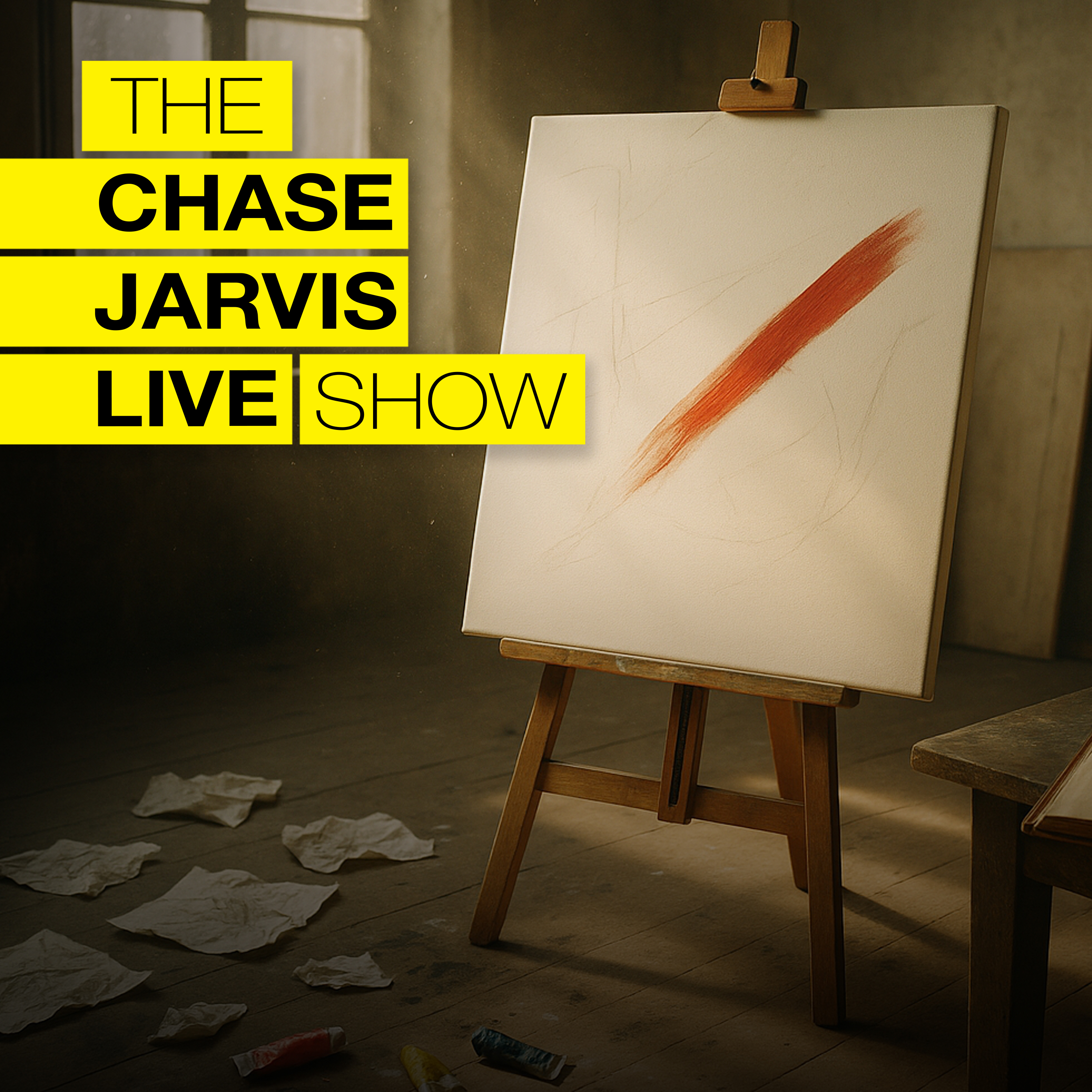
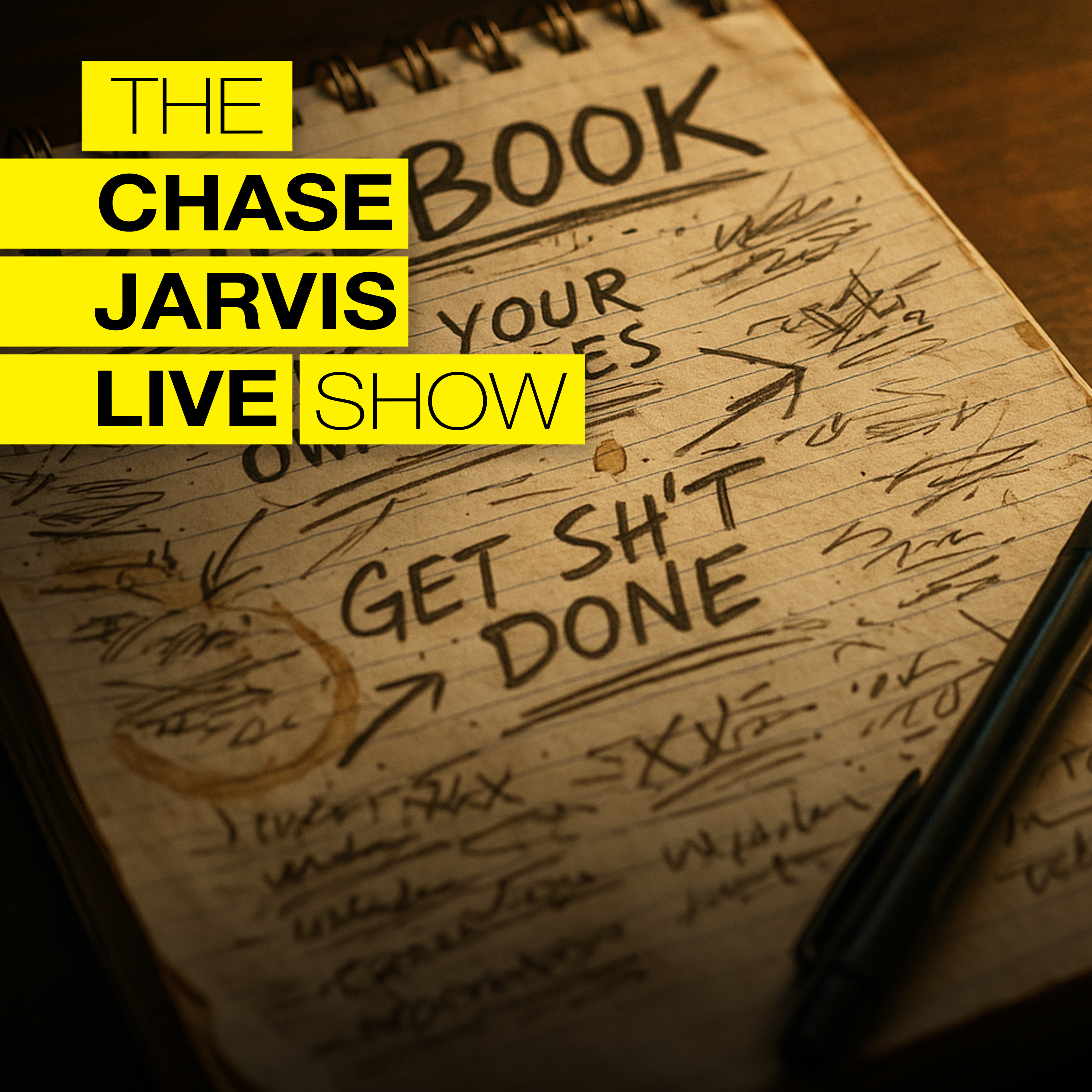
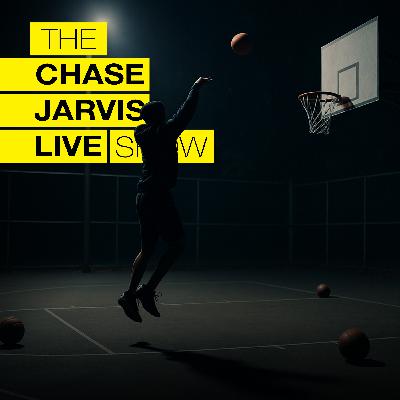
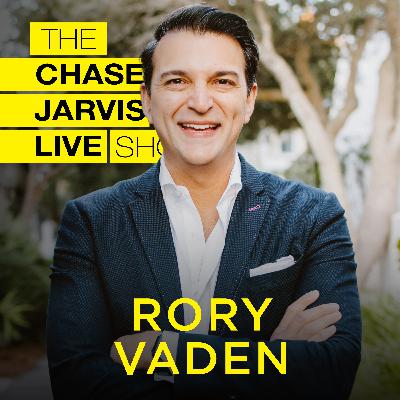
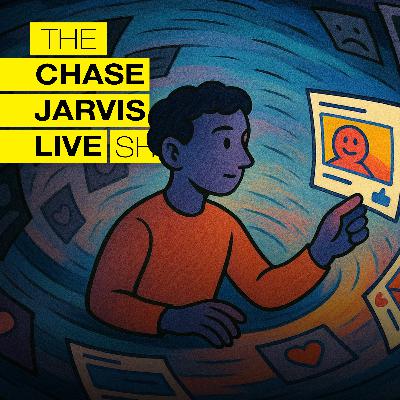

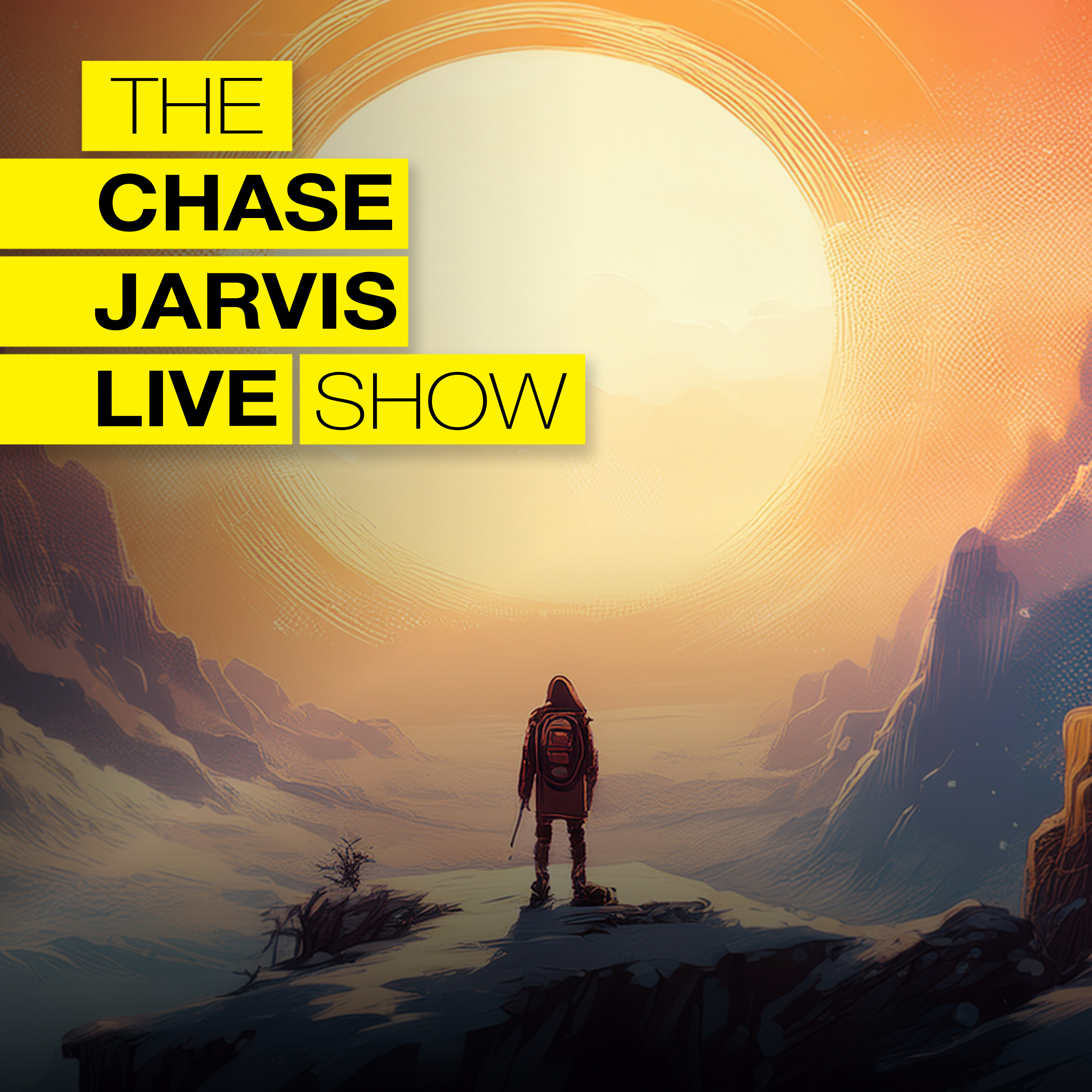
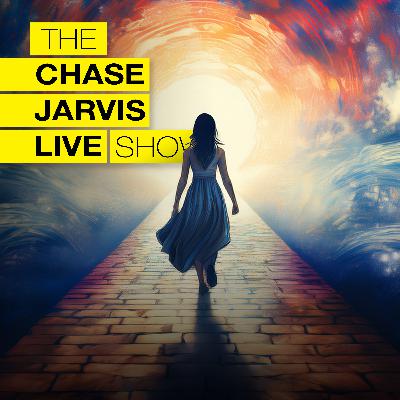



Declare/call yourself as that professional identity Be in business - bank account, register, business cards Devour information to be able sustain your business To be the noun, do the verb - do the thing every day Repeat
Half way through the podcast before you even get to introducing the guest and getting to the substance. This is what I hate about so many podcasts 🤦♂️
good
that was awesome!!!
Extraordinary conversation!
OMG this episode was absolutely amazing! I had to stop so many times on my mornung walk to stop and process and the knowledge Amber was dropping throughout the episode.
Great podcast - thanks!